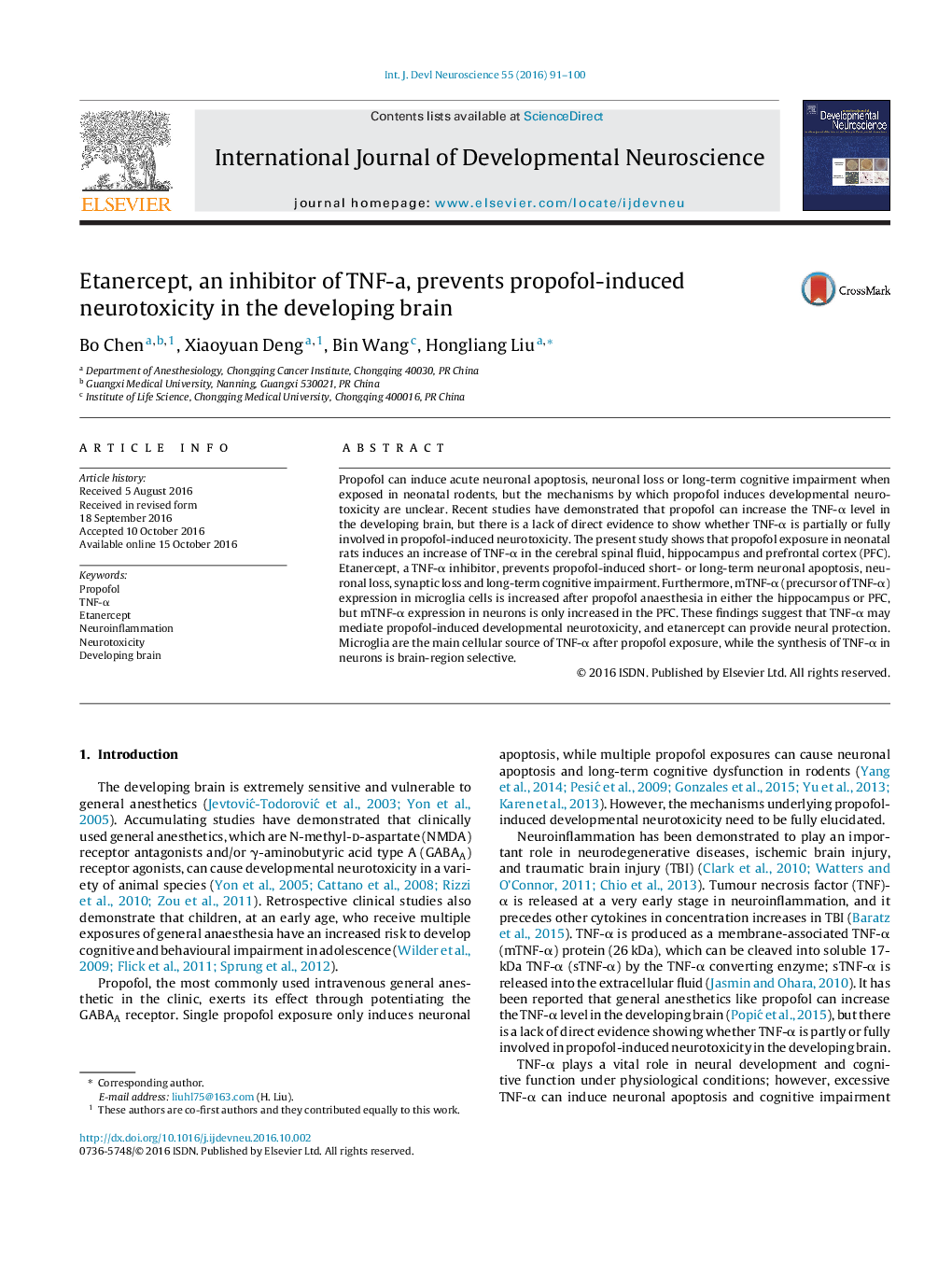| Article ID | Journal | Published Year | Pages | File Type |
|---|---|---|---|---|
| 8626191 | International Journal of Developmental Neuroscience | 2016 | 10 Pages |
Abstract
Propofol can induce acute neuronal apoptosis, neuronal loss or long-term cognitive impairment when exposed in neonatal rodents, but the mechanisms by which propofol induces developmental neurotoxicity are unclear. Recent studies have demonstrated that propofol can increase the TNF-α level in the developing brain, but there is a lack of direct evidence to show whether TNF-α is partially or fully involved in propofol-induced neurotoxicity. The present study shows that propofol exposure in neonatal rats induces an increase of TNF-α in the cerebral spinal fluid, hippocampus and prefrontal cortex (PFC). Etanercept, a TNF-α inhibitor, prevents propofol-induced short- or long-term neuronal apoptosis, neuronal loss, synaptic loss and long-term cognitive impairment. Furthermore, mTNF-α (precursor of TNF-α) expression in microglia cells is increased after propofol anaesthesia in either the hippocampus or PFC, but mTNF-α expression in neurons is only increased in the PFC. These findings suggest that TNF-α may mediate propofol-induced developmental neurotoxicity, and etanercept can provide neural protection. Microglia are the main cellular source of TNF-α after propofol exposure, while the synthesis of TNF-α in neurons is brain-region selective.
Related Topics
Life Sciences
Biochemistry, Genetics and Molecular Biology
Developmental Biology
Authors
Bo Chen, Xiaoyuan Deng, Bin Wang, Hongliang Liu,
